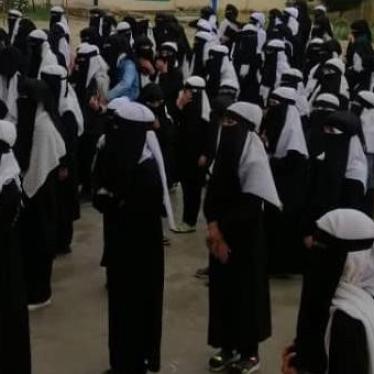Donor governments meeting in Geneva today should address the human rights crisis in Sudan as well as the humanitarian crisis.
Currently one million people are internally displaced within Darfur, an arid region in western Sudan, and another 110,000 refugees have fled to Chad. All of them desperately need humanitarian assistance. The United Nations has called Darfur “the worst humanitarian crisis in the world today.”
But the root cause of this humanitarian crisis is the Sudanese government’s campaign of “ethnic cleansing” against civilians of three ethnic groups. Only by addressing the human rights crisis can donor governments hope to solve the humanitarian disaster, Human Rights Watch said.
“The crisis in Darfur is a manmade emergency,” said Kenneth Roth, executive director of Human Rights Watch. “Humanitarian aid is urgently needed, but it is not enough. A political solution is necessary: the Sudanese government’s ethnic cleansing must not stand.”
The Sudanese government has armed, trained and deployed militias known as Janjaweed who have attacked and burned to the ground hundreds of villages, killed thousands of civilians, looted hundreds of thousands of animals and destroyed farming supplies and water sources. Khartoum has backed up the Janjaweed with Sudanese army forces and air support from Antonovs and attack helicopters.
These joint forces are targeting civilians from three ethnic groups—the Fur, Masalit and Zaghawa—from which rebels in Darfur draw their recruits. After attacks, the Sudanese government has prevented the surviving civilian population from returning to their homes.
Roth urged donor governments to insist that the Sudanese government disarm, disband and withdraw the Janjaweed from the areas they have occupied, as well as assure protection and assistance for the displaced so that they may return home voluntarily and in safety.
If the Sudanese government fails to act, Roth said, the U.N. Security Council should be prepared to invoke Chapter VII of the U.N. Charter, which permits the Security Council to take all actions necessary to “maintain or restore international peace and security.”
On April 8, the Sudanese government signed a ceasefire agreement with Darfur’s two rebel groups. But attacks against civilians, including murder and rape, have continued. The Janjaweed militia has continued its campaign of ethnic cleansing in South Darfur, burning villages, killing civilians—as many as 56 in one village, according to survivors—and displacing thousands.
Meanwhile, a Sudanese government Antonov airplane and two helicopter gunships bombed a crowded market on Friday, May 28, killing at least 12 persons in a village near El Fashir, capital of North Darfur. There have also been numerous credible reports of continuing attacks on civilians in displaced camps and settlements under government control.
In the April 8 ceasefire agreement, the parties tasked the African Union with creating a commission to monitor the ceasefire, but the accord did not give it a specific mandate to protect civilians.
Donors need to generously fund not only the emergency relief program but also human rights monitors to observe that the return of the displaced is done in safety and voluntarily. These monitors should also investigate the safety of the displaced in camps where they are now subjected to Janjaweed looting, rape and murder. Monitors also need to watch villages not yet attacked.
If and when the Janjaweed withdraw from Darfur, measures also will be necessary to prevent the rebels from taking advantage of a government militia pullout.
The Sudanese government took up the campaign in Darfur in early 2003 in response to surprise rebel attacks on its military garrison in El Fashir, the capital of North Darfur. The rebels destroyed at least seven military planes on the ground, inflicted casualties and held Sudanese military personnel.
Khartoum has obstructed international efforts to set up a relief campaign. Although it has recently promised to facilitate visa applications for relief workers, the Sudanese government has stalled on approving the appointment of a U.N. official to coordinate the massive relief operation. Donors must insist that the Sudanese government immediately accept the United Nations’ senior resident representative and allow him to take up his posting in Khartoum.
“Humanitarian assistance will save lives, but strong political action is also needed to stop the gross human rights abuses causing the displacement and starvation of these farmers,” Roth said.




